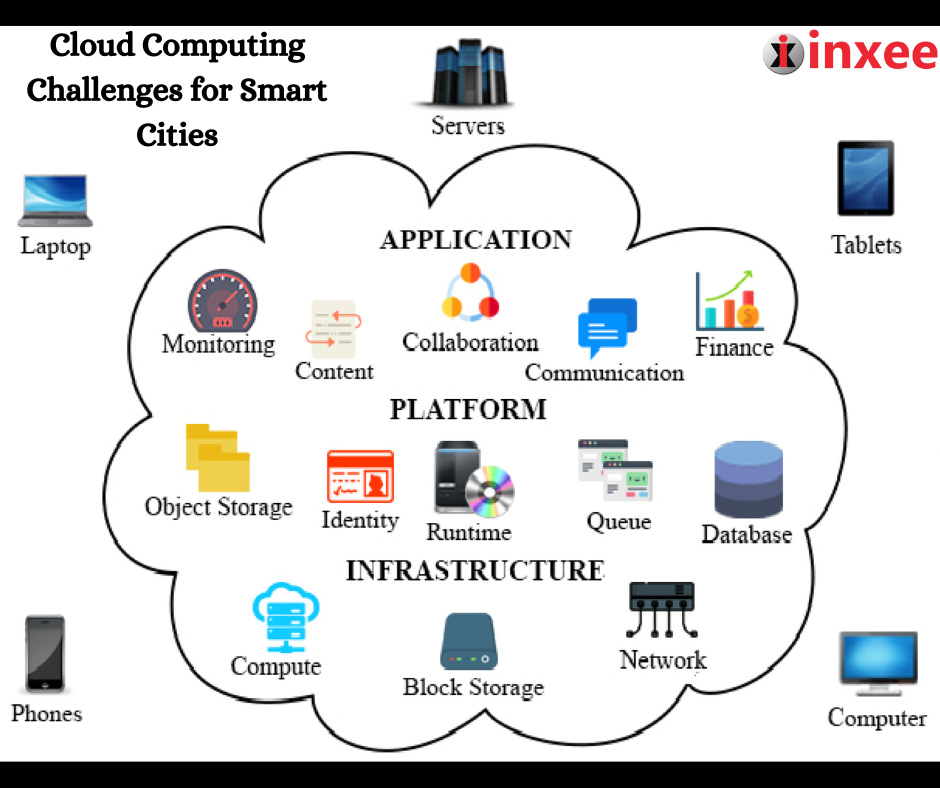June 20, 2023
Artificial Intelligence (AI), cloud computing, edge computing, embedded systems, Fifth Industrial Revolution, Five layer architecture, Green Technology, Home Automation, Industry 5.0, internet of medical things, Internet of Things, iomt, IoT, IoT Devices, Smart City
No comments
Cloud Computing Challenges for Smart Cities
While cloud computing offers numerous advantages for smart cities, there are also several challenges that need to be addressed:
- Connectivity and Bandwidth: Smart city applications generate massive amounts of data that need to be transmitted to and from the cloud. This requires robust connectivity infrastructure and sufficient bandwidth to handle the data volume and ensure real-time communication. Limited connectivity or network congestion can hinder the performance and responsiveness of cloud-based services.
- Data Privacy and Security: As smart cities collect and store vast amounts of sensitive data, ensuring data privacy and security becomes a critical challenge. Cloud computing involves storing data on remote servers, raising concerns about unauthorized access, data breaches, and compliance with privacy regulations. Smart cities need to implement stringent security measures, such as encryption, access controls, and secure authentication, to protect data in the cloud.
- Vendor Lock-in: Adopting cloud services can lead to vendor lock-in, where a smart city becomes heavily dependent on a particular cloud provider’s technology and infrastructure. This dependency can limit flexibility and hinder the ability to switch providers or migrate to different platforms. Smart cities should consider adopting open standards and architectures to mitigate the risk of vendor lock-in and promote interoperability.
- Data Governance and Ownership: Smart city data is often collected from various sources and shared across different stakeholders. Defining clear data governance policies and addressing ownership rights can be complex. Smart cities need to establish mechanisms to ensure transparent data management, define data ownership, and establish protocols for data sharing and collaboration among multiple entities.
- Legacy System Integration: Smart cities may already have existing legacy systems and infrastructure that need to be integrated with cloud-based solutions. Legacy system integration can be challenging due to technological incompatibilities, data migration complexities, and the need for system modernization. Smart cities should carefully plan and execute the integration process to ensure seamless interoperability between legacy systems and cloud platforms.
- Skills and Expertise: Implementing and managing cloud computing solutions require specialized skills and expertise. Smart cities need IT professionals who are proficient in cloud technologies, data management, cybersecurity, and system administration. Acquiring and retaining talent with the necessary skills can be a challenge, particularly for smaller cities with limited resources.
Addressing these challenges requires a comprehensive strategy that encompasses robust connectivity infrastructure, stringent security measures, clear data governance policies, interoperability standards, careful system integration, and investment in skills development. By addressing these challenges, smart cities can leverage cloud computing to drive innovation, enhance efficiency, and deliver sustainable and citizen-centric services.










Leave a Reply